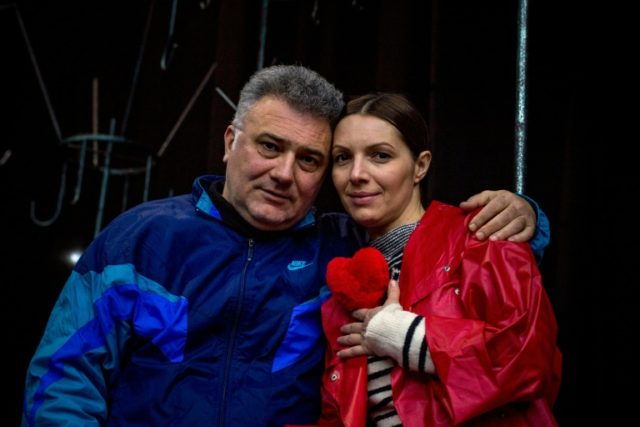Belgrade (AFP) – Slobodan Milosevic, the late “Butcher of the Balkans” who was a hero to many of his countrymen, is back in Kosovo, where a Serb-run theatre is staging a musical exploring the dichotomy.
The “Slobodan Show” premieres Tuesday in Gracanica, a Serb enclave in Kosovo, whose population of 1.8 million is predominantly ethnic Albanian.
All the cast members, like the bulk of the some 39,000 Serbs who lived in Kosovo’s capital Pristina before the war in the southern Serbian province, moved to nearby Gracanica after a NATO bombing campaign ousted Milosevic’s forces in 1999.
“With this play, we wanted to deal with our own demons, with a merciless period for us,” Nenad Todorovic, the play’s 45-year-old director, said during a rehearsal in a small Belgrade theatre.
“We’ve opened a closet from which skeletons are suddenly coming out,” he added.
Jelena Bogavac, who wrote the libretto, said she wanted to open a dialogue on the “identity crisis” of Serbs who failed to reach a “consensus on the guilt or innocence of Milosevic.”
The text is drawn from Milosevic’s speeches and books as well as his wife Mira Markovic’s diary, which she published in a Belgrade weekly in the 1990s.
The journal often presaged future decisions of the strongman who was widely thought to be heavily influenced by his wife.
The play opens with Markovic recalling that she told him: “Don’t go to Kosovo!” and lamenting “He didn’t listen to me.”
Many believe it was in Kosovo — then a southern province of Serbia and now a disputed territory — where the 1990s Balkan wars began as well as ended.
Milosevic, then a top Yugoslav socialist official, began visiting Kosovo in 1987, planting the seeds of Serbian nationalism.
While Kosovo’s Albanian majority were clamouring for more autonomy from Belgrade, Milosevic inflamed the passions of the Serbian minority, building an image of protector of his people with shouts of “No one has the right to beat you!”
Little more than a decade later, 200,000 or two-thirds of Kosovo Serbs, would be forced to leave.
Milosevic is widely considered responsible for the wars in Croatia, Bosnia and Kosovo, which claimed more than 130,000 lives, while millions of people were forced to leave their homes.
The final conflict in Kosovo left 13,000 dead, mainly ethnic Albanians.
Last month the self-proclaimed Republic of Kosovo marked the 10th anniversary of its independence, which Belgrade refuses to recognise.
– ‘Fond of creating chaos’ –
Wearing the kitschy tracksuits that were fashionable in Milosevic’s Serbia, the actors in the “Slobodan Show” recall a time of international isolation.
“In the quiet of his office, he was fond of creating chaos out of order. He was a good communist, but a much better nationalist,” they recite while walking in a circle.
In the eyes of his people, Milosevic, who died in 2006 while awaiting a verdict on charges of genocide and war crimes in The Hague, remains an ambiguous figure, said Bogavac, 45.
He was praised for calling post-communist Serbia’s first multi-party elections and for signing the 1995 Dayton peace deal that ended Bosnia’s war.
“For a part of the Serbs he is still seen as a hero,” Kosovo Albanian playwright Jeton Neziraj said in Pristina. “That’s why I consider it important to involve artists in demystifying him and stripping him of the mantle of ‘protector of Serbia’.”
Milosevic was ousted from power in a popular uprising in October 2000. For her part, Markovic, facing corruption charges, has lived in exile in Russia since 2003.

COMMENTS
Please let us know if you're having issues with commenting.